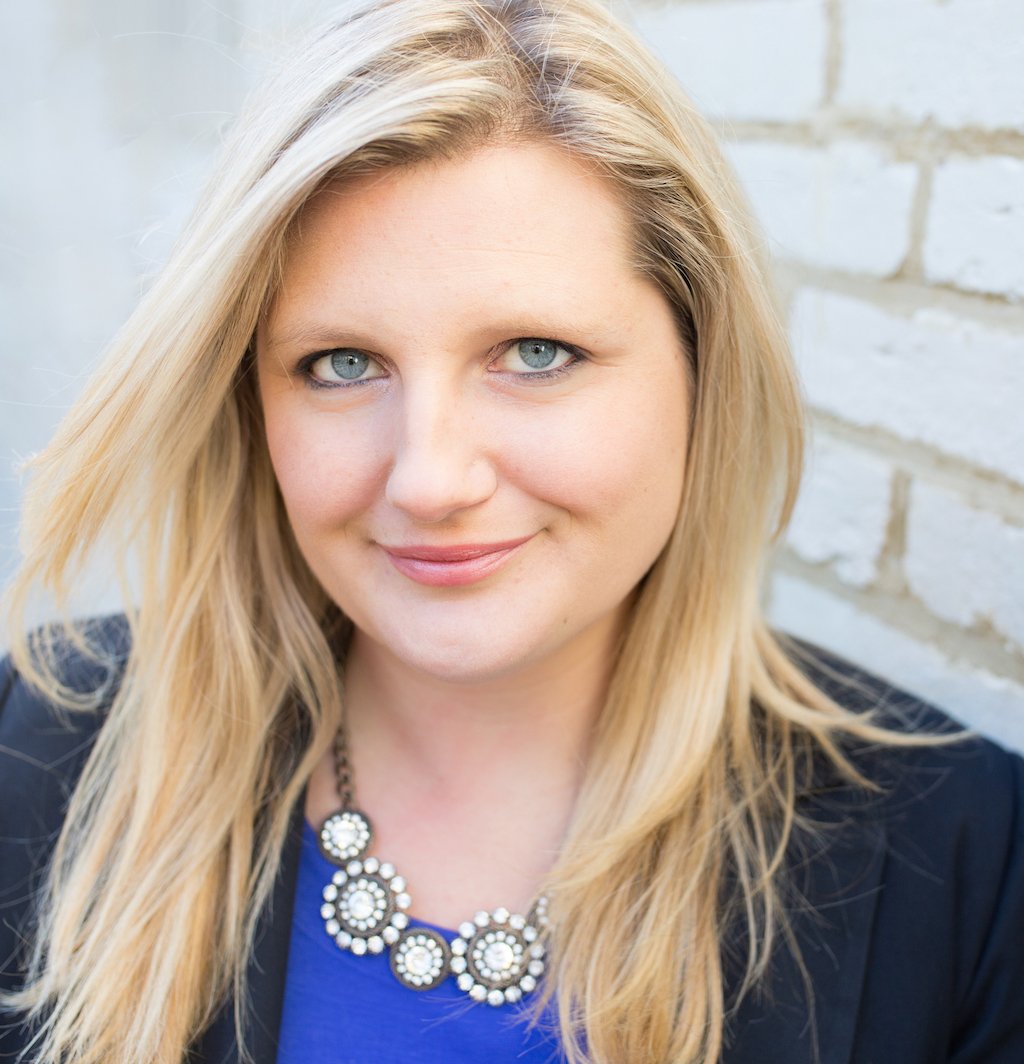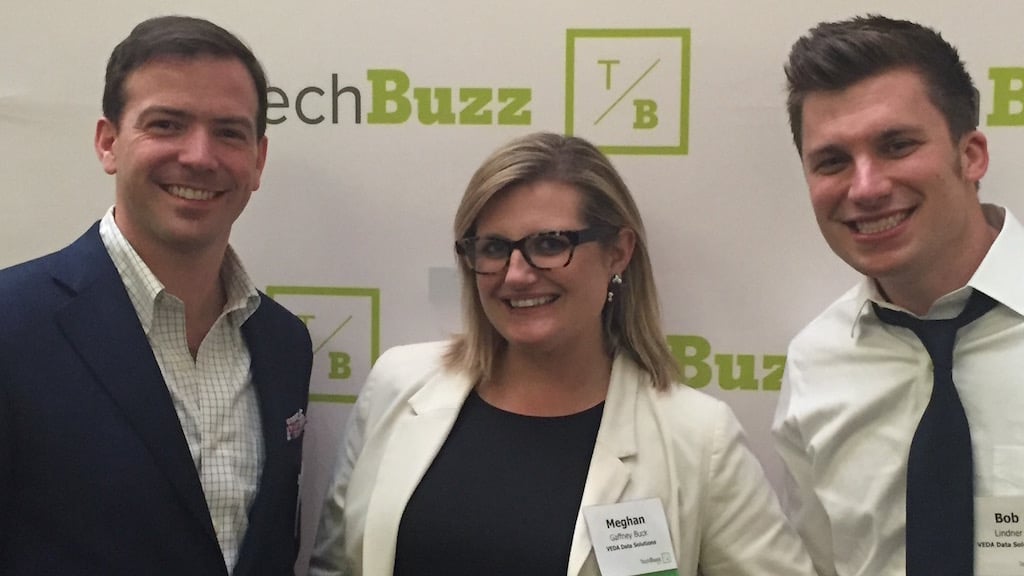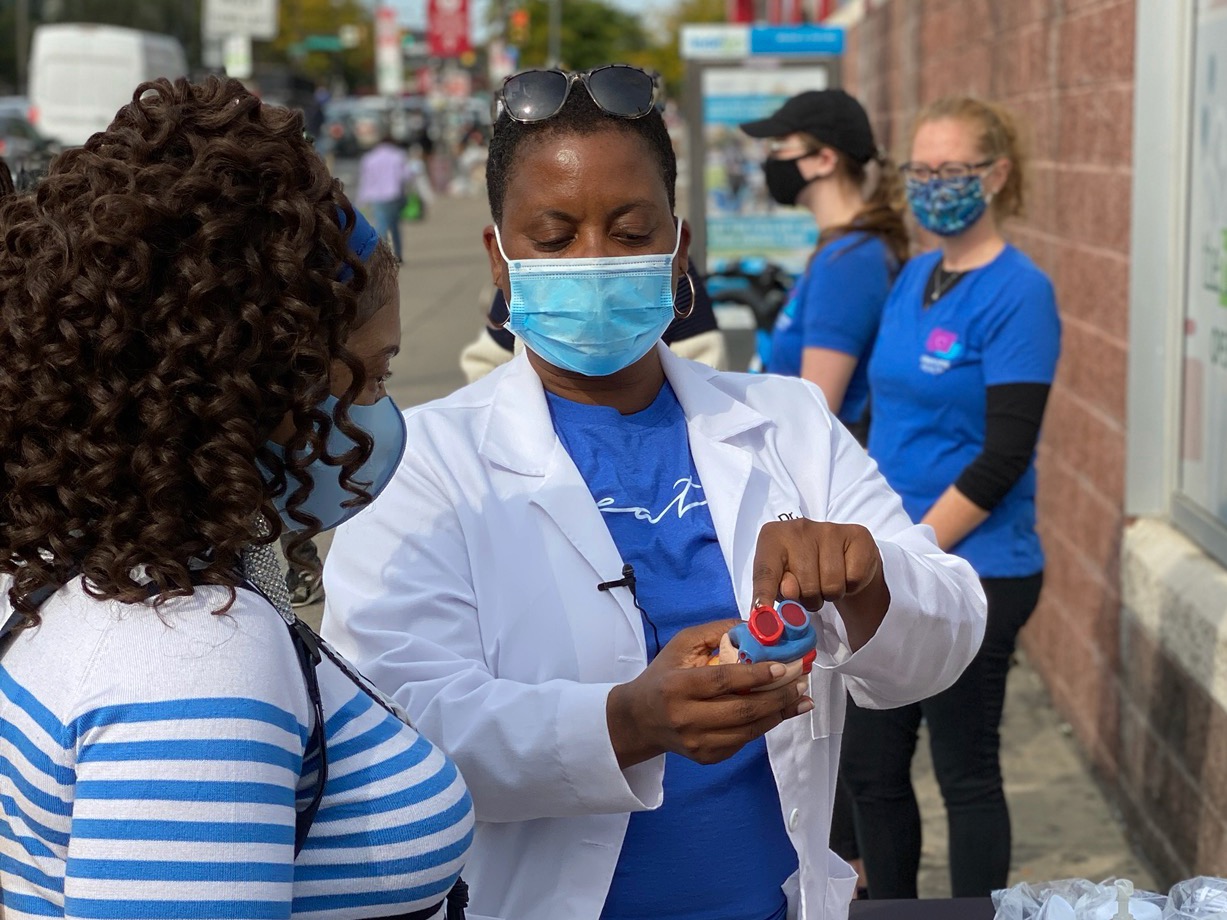Meghan Gaffney Buck was first introduced to the idea of machine-learning technology a couple years ago, while working as a political consultant. One of her clients was in search of a new analytics tool, something that could take in information about consumers and predict their behavior. That’s when she met Dr. Bob Lindner (her future business partner), an astronomer by trade who was building machine-learning tools to analyze telescope data.

“In the first year that Bob and I worked together on a project,” Buck says, “we realized two big things: the first was that the machine-learning tools he was building could solve lots of problems in lots of different industries, and the second was that we just really liked working together.” Lindner’s science background and technical skills meshed perfectly with Buck’s operations and business experience. In 2015, they began working on a concept for a tech startup.
From that, Veda Data was born: a company that uses machine learning to tackle the problem of error-ridden physician directories—something you’ve experienced if you’ve ever looked up a doctor on your insurance carrier’s website to find the listing missing an address or phone number, or including the wrong hours, or any number of other errors.
Veda Data is training machines to identify and correct those mistakes. “You’ve got hundreds of people at companies trying to solve this issue manually, but we can teach machines to do it better and faster,” Buck says. “In the same way that Netflix starts to learn what you like by what you click, we’re teaching a machine to do something that’s less cool or sexy, but still really important.”
Now, Veda Data is under contract with one of the five biggest health insurers in the country. Recently, Buck and Lindner hired two new data scientists, and they just closed a $750,000 seed investment.
I had a chance to chat with Buck about becoming a woman entrepreneur and CEO, entering the tech space, and scoring the connections and funding that got Veda Data off the ground.
What was the biggest struggle you faced during the entrepreneurial process?
In the beginning, I struggled with finding my own voice in the process of talking about the company. I developed our marketing and outreach plan, and I’m the one speaking to investors, but I have a male business partner who is a world-renowned scientist, and he’s 32. So I found myself talking about Bob and his expertise, and not owning my role. Part of it was fear—because I know how hard it is for a woman to be seen as a leader in tech, and trusted as smart and capable enough to run a company. But I learned that if you don’t take yourself seriously, no one else will either. And we didn’t move forward until I got comfortable talking about myself and my part in the company.
Have you ever felt like you had to approach the process differently because you’re a woman?
In a lot of pitch competitions I’ve participated in, I was the only woman. And the tech casual attire that they advertise to make these events cool—well there’s just no situation where I could roll up in jeans and a hoodie and be taken seriously. So it’s a bunch of guys in branded startup T-shirts and jeans, and they’re looking very Silicon Valley, and I’m in a J. Crew dress, heels, and pearl earrings. And that’s just how I have to be dressed. That style difference is a really tangible expression of what you need to do to be taken seriously as a woman CEO.
Were there any DC resources you used along the way?
The two big ones are The Vinetta Project DC and 1776. Vinetta was actually my very first opportunity to pitch onstage in front of a real audience of investors. I had a mentor through Vinetta, too, who coached me through the entire pitch process, and actually totally changed my deck. She was honest, but she also trusted me enough to do the right thing. I also loved that it was a room full of people—both men and women—who knew they were coming to watch women pitch. We ended up walking away having talked to investors from big angel groups in the area and funds like Revolution and NEA. And at 1776, they have a women founders cohort. All of us get together for lunch every month, and that’s a great space to openly talk about the challenges we’re facing. Through that, I also got introduced to a mentor who later became a member of our advisory board.
What would you have done differently if you could go back and do it all over?
Reach out earlier to get real guidance from investors. Over the last year, I’ve reached out and gotten mentors at more established investment funds to ask them, “What are the benchmarks that I need to hit? What are the metrics that I need to know?” And I think I was afraid, at first, to even ask those questions. I thought if I knew what I needed to be successful, I’d be worried I couldn’t do it. So I hesitated in that regard. And the other thing is, with starting a new company, it sometimes doesn’t feel comfortable to pivot—so being open and willing to do that. We started out working in politics and then in the music industry, and it was fun and exciting, but it wasn’t where we needed to be. So when the healthcare option came up, I had to make sure my identity as a CEO wasn’t tied up in the exact product that we were creating for a particular market.
Do you have any advice for women looking to start their own businesses?
Look for people who will give you honest, brutal advice. I’ve been lucky to have those mentors, both male and female, who know what they’re doing, who’ve done this before, and who are willing to tell me when I’m wrong. Also, it’s important to figure out how to own your story and your successes because the fact of the matter is, less than 5 percent of venture capital money goes to women-run companies. So we don’t have to be good, we have to be perfect. But that doesn’t mean you can’t be part of the 5 percent, and it doesn’t mean that number can’t change. So instead of being discouraged by it, it’s important to own your victories along the way: your first contract, your first revenue, your first hire. It’s good to be able to say, “Great, we broke that barrier—now on to the next thing.”




















